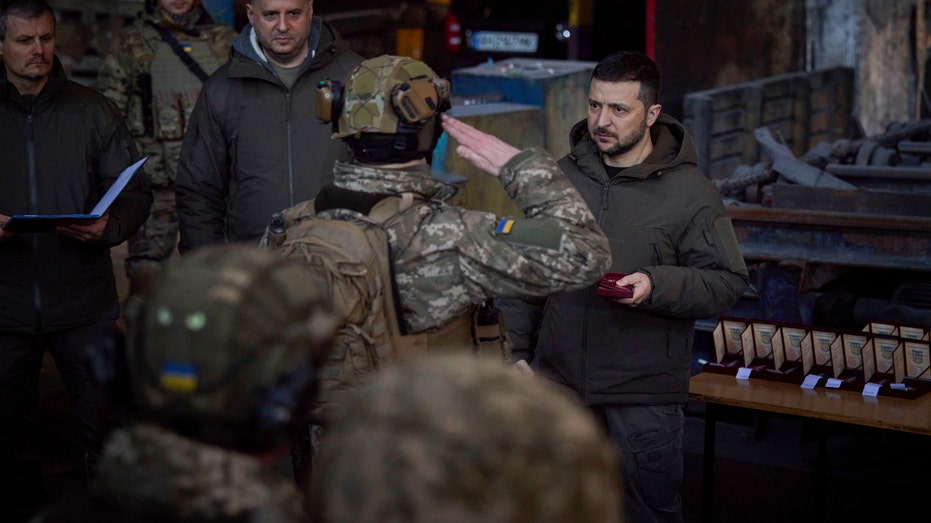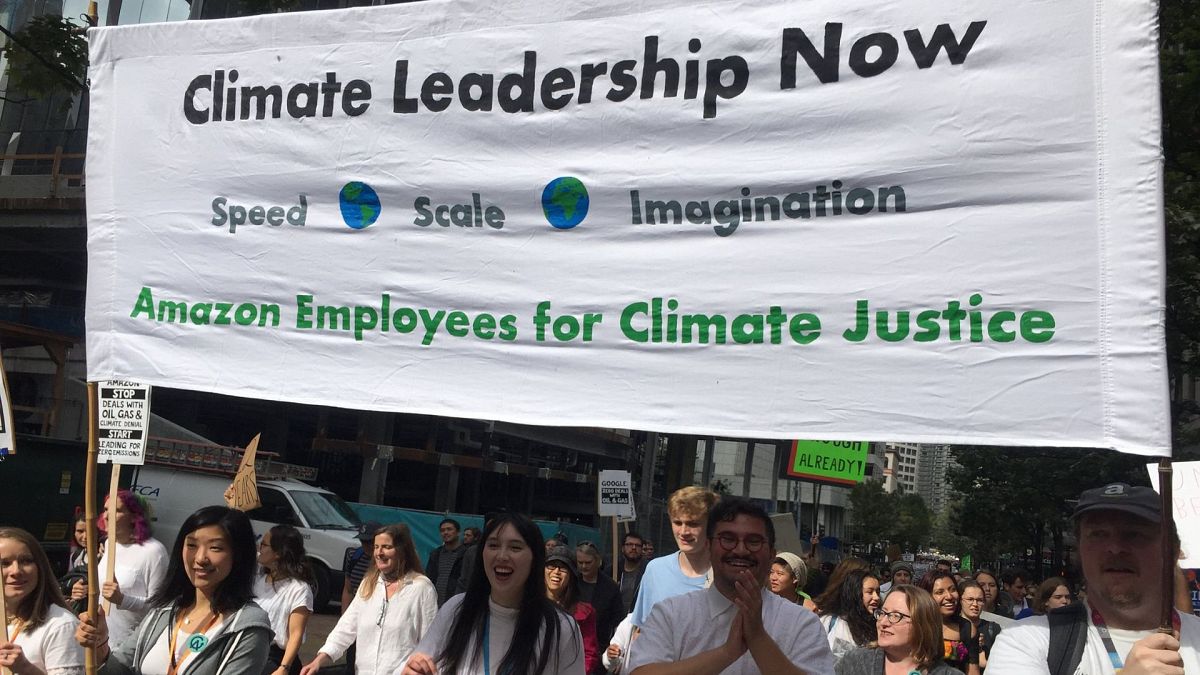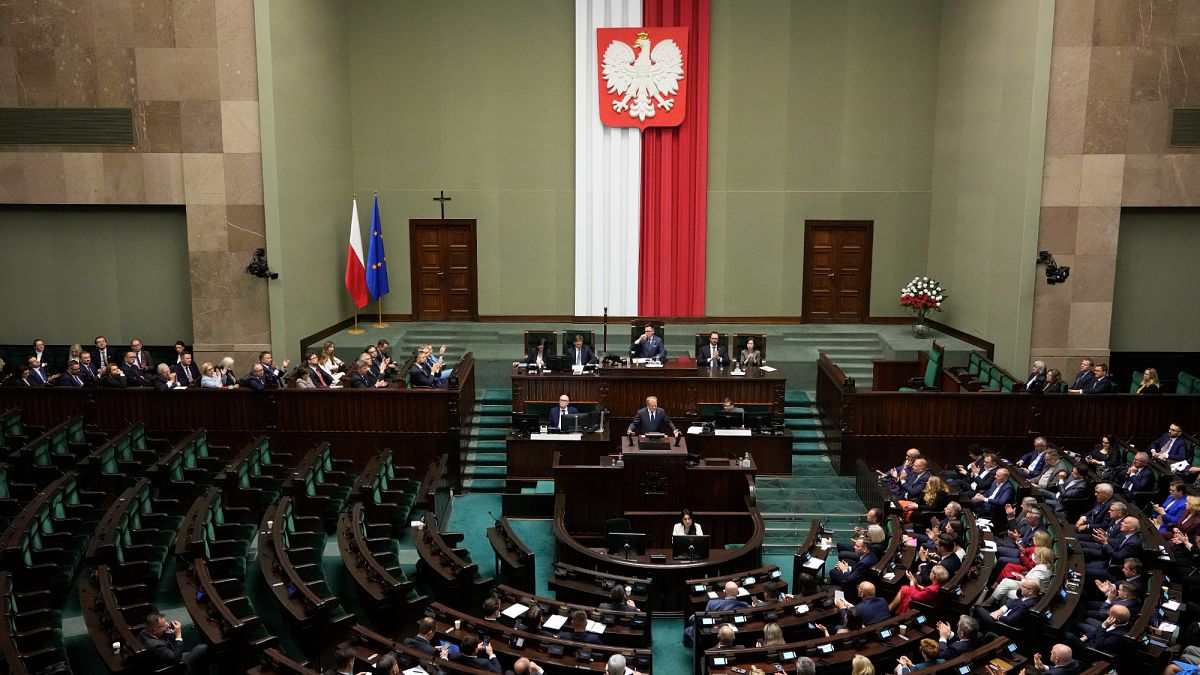Zelenskyy will face 'reckoning' when war with Russia ends, expert says
Time reporter Simon Shuster has spent 17 years as a foreign affairs correspondent with a focus on Russia and Ukraine, reporting on the ground starting with Crimea's annexation.

Ukrainian President Volodymyr Zelenskyy will face a reckoning when the war with Russia ends, either from a victorious Moscow or from a public demanding answers after meandering – if inspired – resistance, according to an expert.
"There’s certainly going to be a reckoning, at some point, maybe even during the war – certainly after the war, related to the failure to sufficiently prepare," Simon Shuster, a 17-year senior correspondent covering Russia and Ukraine and the author of the upcoming book "The Showman," told Fox News Digital.
"Those kinds of questions and grievances are already bubbling up in the Ukrainian political arena and around kitchen tables across Ukraine," Shuster said. "Why wasn't Ukraine more prepared? Why weren't people warned more?"
Shuster has covered Ukraine and Russia for Time as an international affairs reporter, starting his on-the-ground reporting in Ukraine with the Russian annexation of Crimea in 2014. He looped in early on with Zelenskyy’s campaign when he noticed the "upstart" comedian making waves in the 2019 Ukrainian presidential election.
ZELENSKYY MAKES URGENT CALL FOR SUPPORT AT WORLD ECONOMIC FORUM AT DAVOS
"I think the issue they were having more was that no one was taking them seriously," he explained, saying that he had little trouble getting face time with the then-candidate Zelenskyy. "They didn’t have many appeals from big international publications, so they were quite happy to have a reporter from Time magazine come knocking and let me backstage."
In "The Showman," Shuster records his time on the ground in Ukraine during the first year of Russia’s invasion. He embedded with Zelenskyy’s camp once again, spending time among his advisers and getting a rare glimpse at the inner workings of one of the most inspired resistances in a David vs. Goliath showdown.
The book's prologue describes a buoyant and energetic Zelenskyy who hid his anxieties well as he won over the hearts of voters in what ended up a landslide victory. By the end of the book, Zelenskyy has lost much of that spark.
"Maybe somewhere, most likely around the eyes, the young Zelenskyy from the comedy circuit in Kryvyi Rih continued to animate his features," Shuster wrote regarding Zelenskyy’s appearance before the U.S. Congress in Dec. 2022.
REPORTER'S NOTEBOOK: NATO GOES BACK TO THE COLD WAR TO FEND OFF RUSSIA
"I couldn’t see much trace of him as he walked down the aisle of the House Chamber. The early swing of his body in those early stages of his youth did not survive the impact of the invasion," he continued.
When discussing Zelenskyy’s "dramatic" changes during that first year of the war, Shuster told Fox News Digital that some things remain as they always were, including the Ukrainian president’s stubborn streak and trust in his intuition – though he notes that Zelenskyy in the run-up to the invasion continued to downplay the risk of any such military action actually occurring.
"He’s very confident in his decision-making and quick with it," Shuster said. "He doesn’t second guess himself. Once he takes a position, he carries it through, and he doesn’t have a lot of patience for people who then second guess him or try to steer him away from a decision."
Overall, understandably, Shuster found that Zelenskyy became "in many respects, a different person" after coming to "embody this persona of the wartime leader as he understood the responsibilities" of his office.
ZELENSKYY PROPOSES DUAL CITIZENSHIP FOR UKRAINIAN DIASPORA
"That’s an enormous degree of toughness, of self-sacrifice, of risk-taking, and, yea, the mood, the atmosphere inside his administration changed a lot over the months," Shuster explained, highlighting the change in Zelenskyy’s inner circle as a significant factor.
Shuster labeled the early atmosphere of Zelenskyy’s advisers as a "chaotic bunch of people with a lot of jumped, mixed-up and contradictory messages and opinions." Now, Zelenskyy surrounds himself with a "more precise and disciplined" group with fewer members but a greater sense of trust.
"One trap that leaders sometimes fall into is when they surround themselves with a small circle of very loyal advisers and their access to information is diminished," he argued. "They hear about the world through these advisers, who often, historically speaking, may be afraid to give bad or accurate news to the boss."
"Zelenskyy has a very interesting means of avoiding that trap, and I saw this firsthand while traveling with him," Shuster continued. "He asks everybody for their opinion: Soldiers at the front, the cameraman and photographer who travel with [him], drivers or whatever… and me, he would ask me, 'Simon, what do you think about what’s going on outside? Give us your opinion.'"
RUSSIA WARNS UK THAT TROOP DEPLOYMENT IN UKRAINE WOULD BE ‘DECLARATION OF WAR'
The point was to align what he was hearing from those up top with the men at the front and identify discrepancies and avoid the problems of isolation.
Shuster insisted that Zelenskyy remains immensely popular even with his perceived missteps with the war effort, and no clear rival has yet stood out on the political field. Shuster noted that following the Crimea crisis in 2014, some political parties led by military commanders proved unsuccessful and failed to sway "any sizable portion of the electorate."
Both that popularity and any potential rivals will heavily depend on how the war ultimately ends, and Shuster reaffirmed the common belief that Zelenskyy will not accept capitulation or any terms "dictated to him by the Russians."
"I think one red line for him is territorial concessions – giving away land for peace," Shuster said. "He doesn’t intend to do that, and polling is very consistently showing the Ukrainian people don’t want him to do that."
"It’s difficult to imagine terms for a peace deal that would be acceptable to both him and Russia. Their positions are still very far apart," Shuster stressed. "Putin has said pretty clearly recently that his wartime aims have not changed. He intends to fulfill the goals of the military operation he started on February 2022."
"If you take him at his word, that means conquering Ukraine, so I think neither side is backing down, and that does not bode well for any kind of possible peace negotiations," he concluded.
What's Your Reaction?
















